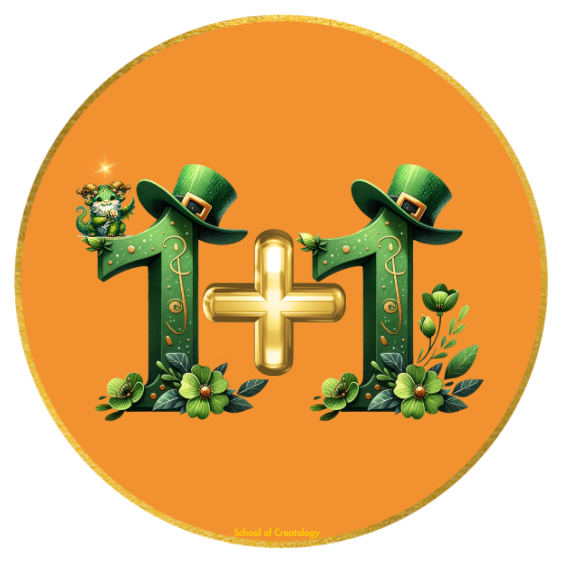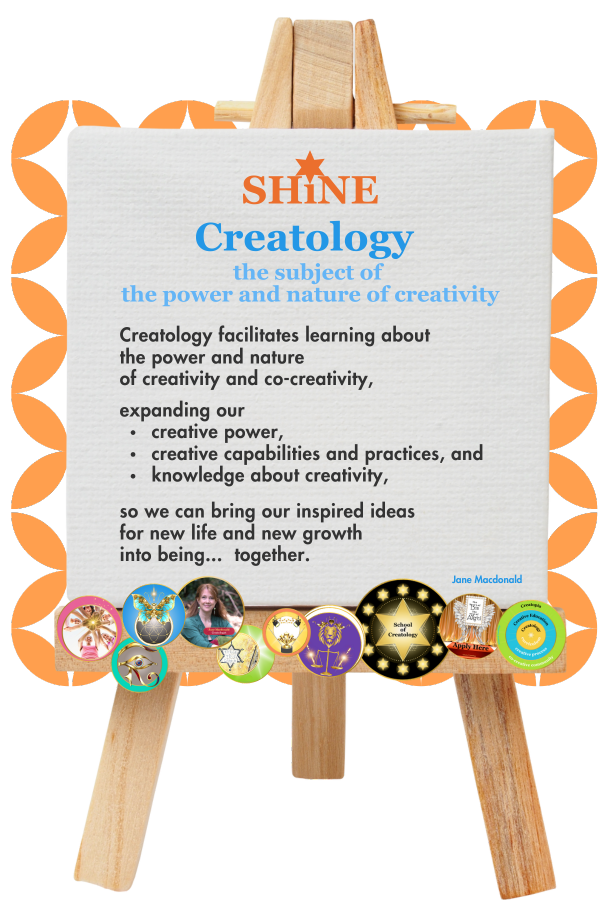
Making of the word 'Creatology'
Not many people have heard of Creatology yet alone knows what it means and why we should bother with it.
It’s fair, enough… I didn’t know either!
While wondering out load what it was that I ‘do’, looking for some sort of word or phrase that could explain it, my eldest daughter said to me,
“You’re a Creatologist.”
She explained she put together ‘creativity with ‘ologist’ because I research creativity.
She is a genius!

Creatology is the combination of the words ‘create’ and ‘ology’.
Creatology isn’t a word recognised by the Oxford English Dictionary, or the Weber Dictionary or, therefore, by the Etymology online Dictionary.
Wikipedia says, “The page ‘Creatology’ does not exist”.
So, it is still brand new, kind of.
The easiest way to understand how ‘create’ and ‘ology’ form ‘Creatology’ is to look at the definitions of both and see how they come together.
Definitions of ‘Creativity’
A google search for definitions of creativity gives what looks like thousands, such as:
- creativity is critical thinking
- creativity is inspiration
- creativity is imagination
- creativity is originality.
All of these things are creative capabilities, not creativity itself.
So, here’s a closer look at related words… create, creation, creative, creativity, and creator.

‘Create’ is a verb (action/process).
It means “to bring into being, cause to exist”.
To manifest.
It is born of the Latin word ‘creatus’, meaning “to make, bring forth, produce, procreate, cause”and is related to ‘crescere’ meaning “arise, be born, increase, grow”.

‘Creation’ is a verb and a noun.
It is defined as the action/process above and the result of that action / process.
Creation is what has been made, brought forth, produced, procreated, arisen, been born, increased, grown… brought into being, caused to exist.
That which is manifesting and manifested.

‘Creative’ is an adjective.
It is born of ‘create’ + ‘ive’ where ‘ive’ turns the verb ‘create’ into an adjective,
meaning “having the quality or function of creativity”.
It means “of, relating to, displaying, using, or involving imagination or original ideas as well as routine skill or intellect… inventiveness.”

‘Creativity’ is a noun.
It refers to “the faculty itself of being creative”, that is, the nature and power to create (to bring into being),”
with its roots in ‘creative’ + ‘ity’.
Note: where ‘creativity’ refers to the faculty of being creative, ‘creative’ refers to having that faculty.

‘Creator’ is a noun.
It means “a person who or thing which creates or brings something into existence” or
“one who creates”.
The School of Creatology’s definition of Creativity
Creativity is a state of being consisting of:
- the power (energy)
- and nature (capabilities, practices, and knowledge)
- of creators (humans nature spirit)
- to make and bring (process, generate, manifest)
- ideas (concepts of things)
- into being (new life, new growth)
- together.

Definition of ‘Co’
As we dive deeper into creativity, we learn about creative capabilities and creative practices.
For example, creative capabilities include vision, inspiration, authenticity, and production.
Creative practices include self-organisation, self-motivation, and self-expression.
Learning about the prefix ‘co’ becomes really important then because it changes the dynamic … and significance… of each skill.
For example, vision becomes co-vision, production becomes co-production;
self-organisation becomes co-organisation, self-expression becomes co-expression…
highlighting the potential of our collective creative power.

‘Co’ and ‘com’ are living prefixes
which means they are widely understood when added to the beginning of words.
They mean “together, with, mutually, in common, as a group, in a body”.

‘Co-creativity’ and ‘co-creation’
therefore mean
“as a group (of two or more) we have the mutual faculty of being creative; of bringing something into existence together”.

‘Co-create’ means “to create in conjunction,”
with conjunction being formed with ‘con’ as in “together, with,”
and
‘junction’ meaning ”act of joining or meeting of individuals or things”.
Conjunction is born of the word “union”.

‘Co-creator’ refers to a person or thing in a state of being creative
within a group which is also in the state of being creative.
Definition of ‘Ology’
‘Ology’ or ‘logy’ depending upon the last letter of the main word, turns that main word into a noun;
something to be learnt about.
It refers to an “academic discipline (science / branch / subject / study) or field of knowledge; especially one of the physical, biological, or social sciences”. Creatology studied scientifically has mostly been within the social sciences, mainly psychology.
‘Ology’ as a subject of inquiry suits my point of view being a researcher and educator.
‘Subject’ suits Creatology itself well
because all human creativity begins with a question that’s been contemplated,
followed by inquiry into that question.

‘Ology’ refers to an “academic discipline (science / branch / subject / study) or field of knowledge; especially one of the physical, biological, or social sciences”.
Creatology has mostly been studied scientifically within the social sciences, mainly psychology.

‘Subject’... The Oxford Language Dictionary defines ‘subject’ as a “branch of knowledge studied and taught in a school, college, or university”.
The Oxford English Dictionary says a subject is “that which forms or is chosen as the matter of thought, consideration, or inquiry; a topic, theme”.
Combining ‘create’ with ‘ology’
Bringing the definitions of ‘create’ and ‘ology’ together,
the School of Creatology defines Creatology as this…
Creatology is the Subject of the Power and Nature of Creativity.
Creatology facilitates learning about the power and nature
of creativity and co-creativity,
expanding our:
- creative power,
- creative capabilities and practices, and
- knowledge about creativity
so we can bring our inspired ideas
for new life and new growth
into being,
together.

